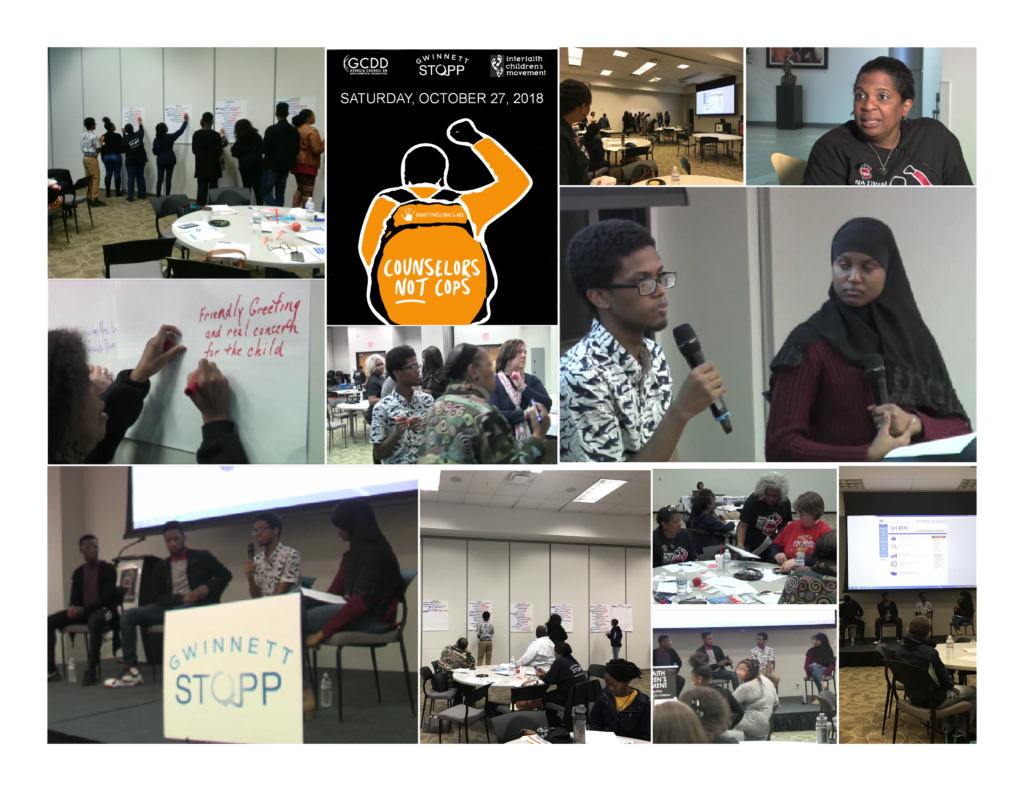
Gwinnett Coalition to Dismantle the School To Prison Pipeline (Gwinnett SToPP), Georgia Council for Developmental Disabilities (GCDD), and Interfaith Children’s Movement in conjunction with the Dignity in Schools Week Of Action, hosted “From Lockers to Lockdown: Black Boys, Special Education and the School to Prison Pipeline” last Saturday. The event explored racial equity in schools and school discipline policy.
Participants probed the underlying factors that create the intersection of race, special education and the School to Prison Pipeline, as well as identifying intentional and effective actions they can take to help stop school pushout.
The day began by empowering parents with the tools to find and understand data about their schools. Participants received a quick tutorial on finding statistics using the U.S. Dept. of Education Office for Civil Rights and the Governor’s Office of Student Achievement websites.
Dana Smith, cultural proficiency consultant, engaged the audience of approximately 30 parents and students in a couple of exercises meant to uncover cultural biases and expectations. In the first the audience had to create statements about various ethnic or racial groups and then decide which ones they, themselves believed to be true and which they thought others believed to be true.
One highlight of the event was a panel discussion led by former Gwinnett County Public Schools student Amina Bursuri with four current Gwinnett County high school honor students – Toyan, Said, and Kamahl. Each student was African American and each, in spite of being honor students active in their school communities, had been suspended at least once. The students demonstrated remarkable resilience and grace in their responses to questions about their school climate.
Throughout the day-long event, parents expressed frustration that their students, most of whom were children of color, were disciplined or even suspended for minor infractions. Parents were especially frustrated that the district seemed reluctant to test for learning disabilities or behavioral disabilities that would mitigate the need for punitive discipline where an Individual Education Plan would be more appropriate. Parents were encouraged to advocate for their children’s needs directly with their schools and not to give up working to get the accommodations necessary for success.
The event concluded with Mr. Smith engaging the participants in a discussion around ways they can make positive change in the lives of their children and their community working from the inside out. The participants considered ways to take their personal stories, add them to a larger narrative that includes their communities, and work together to effect change.
